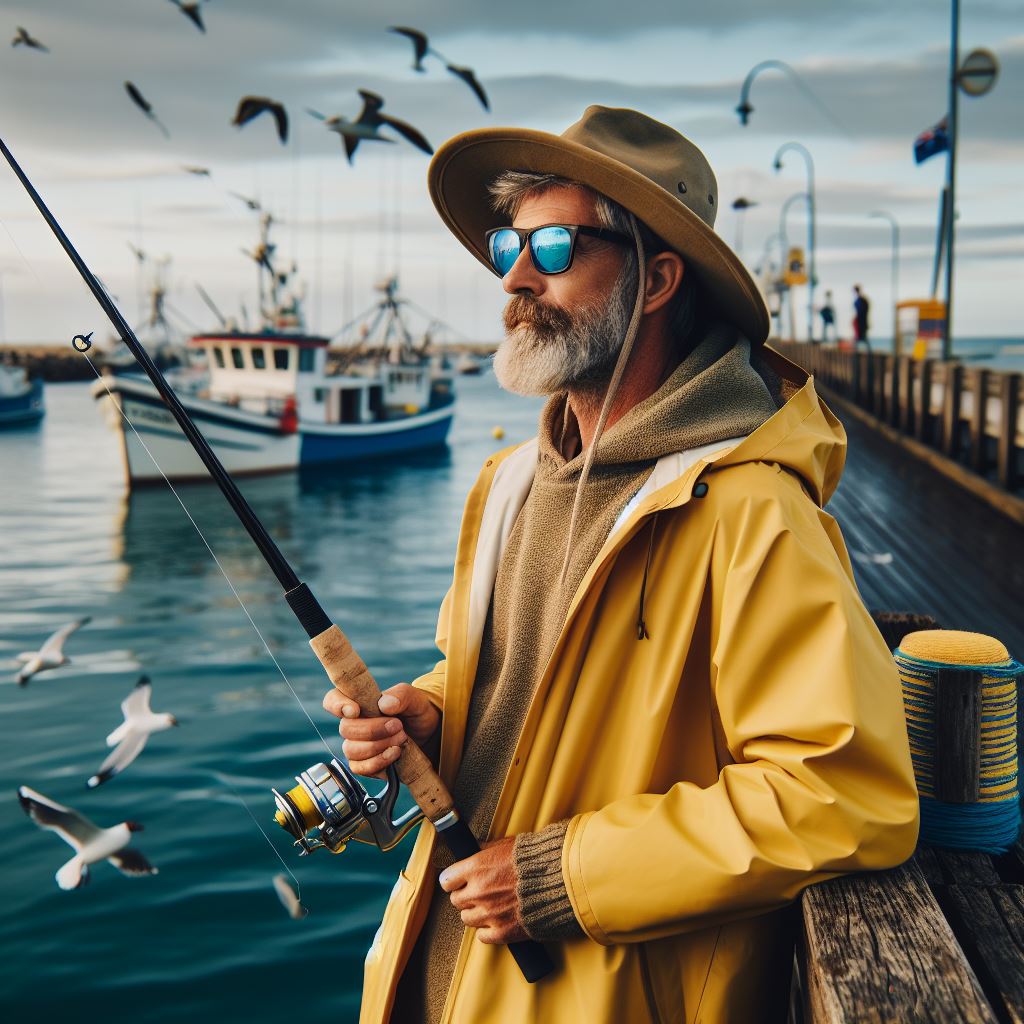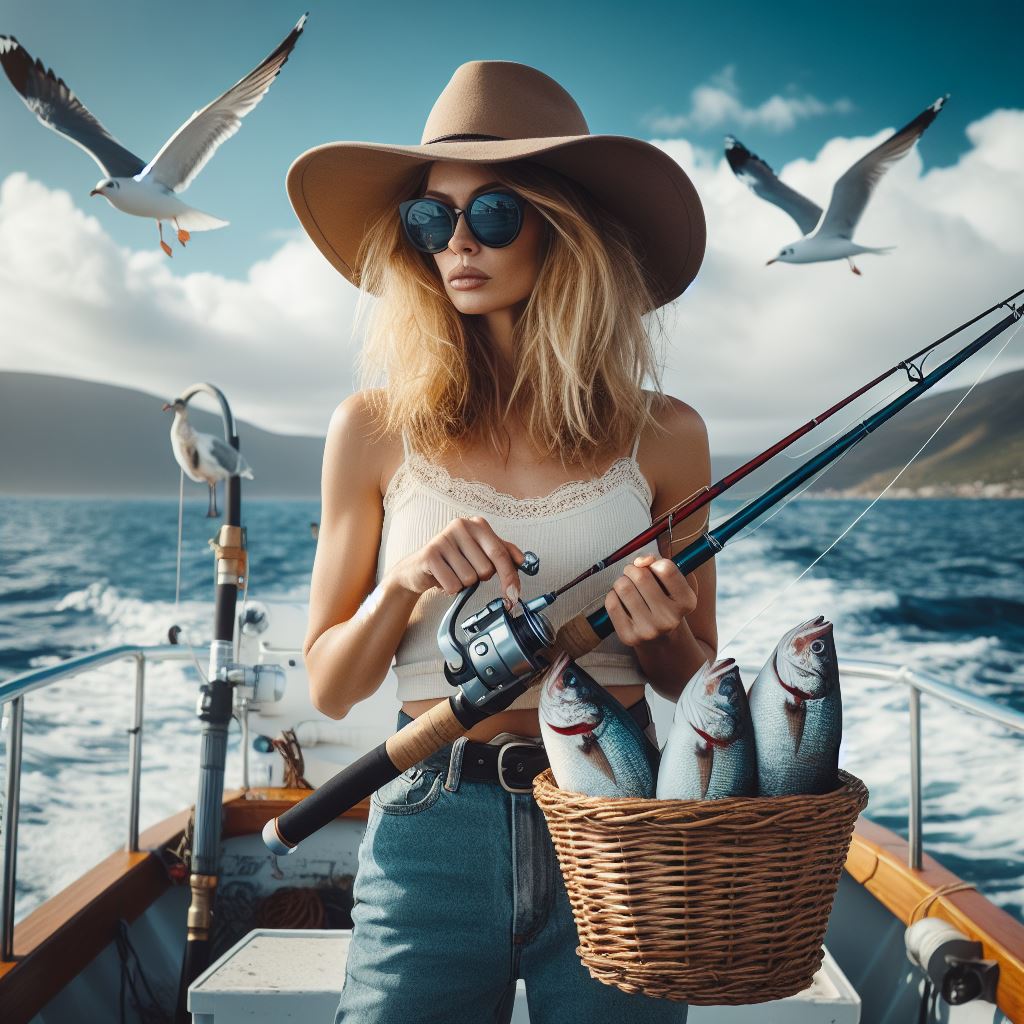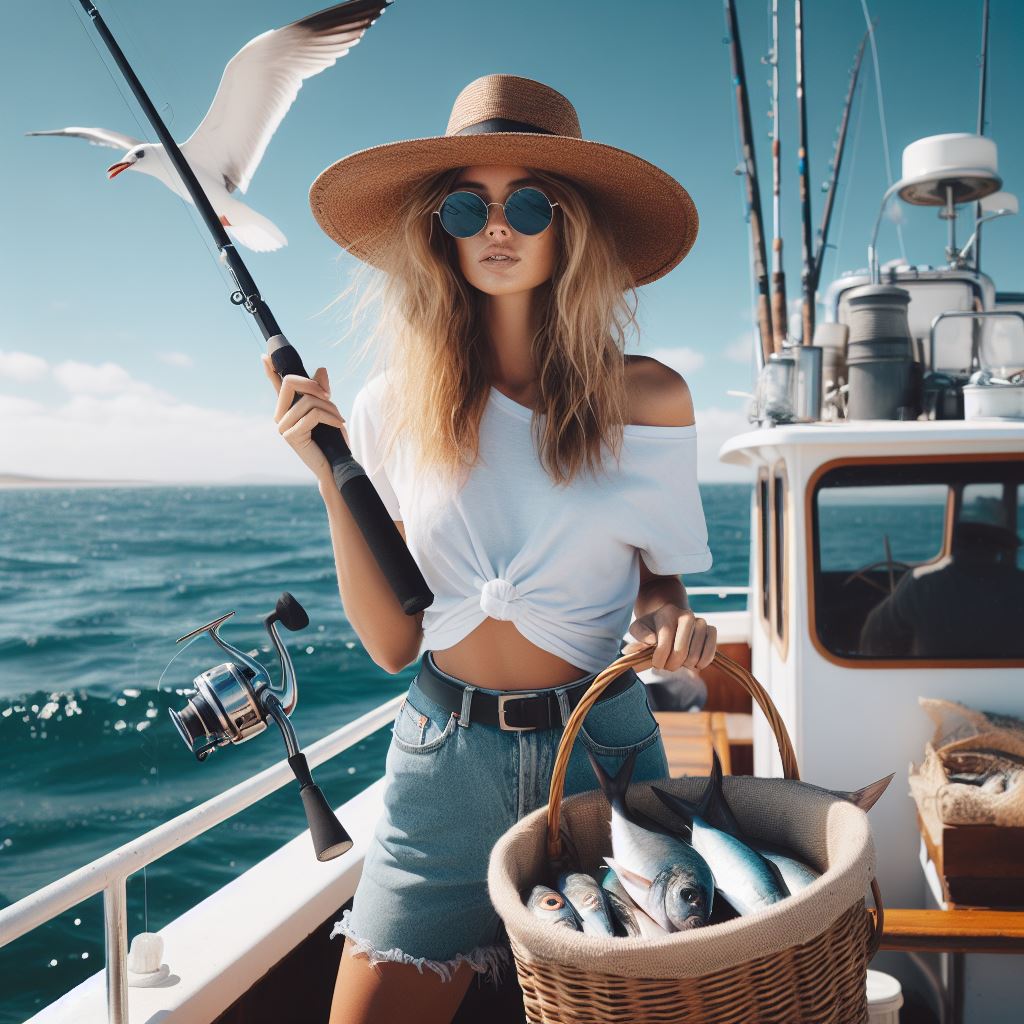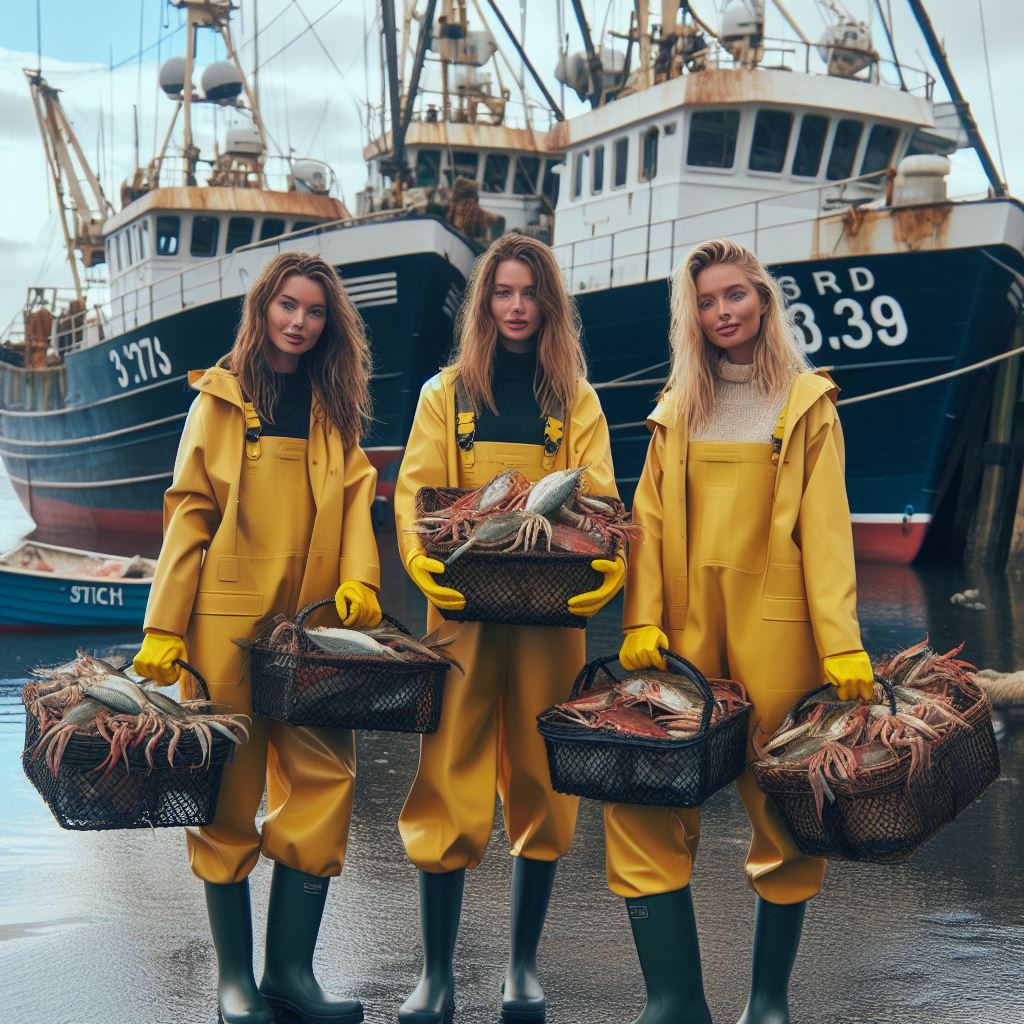Introduction
Australia is known for its diverse marine life and offers excellent opportunities for fishing enthusiasts. Knowing the best times for fishing is crucial for a successful catch.
Understanding the fishing seasons in Australia is essential for several reasons. Firstly, it allows anglers to target specific species during their peak spawning or feeding periods. This increases the chances of success and ensures sustainable fishing practices.
Additionally, knowing the best fishing times helps plan trips and maximize the overall fishing experience. For example, certain species are more active during particular seasons, making it easier to target and reel them in.
Furthermore, being aware of the fishing seasons aids in avoiding unfavorable conditions such as extreme weather, strong currents, or overcrowded fishing spots.
By focusing on the optimal times, anglers can make the most of their time on the water and reduce any potential risks.
Moreover, understanding the fishing seasons also contributes to conservation efforts. Fishing during the appropriate seasons allows for the sustainability of fish populations by ensuring that they have enough time to reproduce and grow.
In fact, knowing the best times for fishing in Australia is essential for a successful and satisfying fishing experience.
It enables anglers to target specific species, plan their trips accordingly, avoid unfavorable conditions, and contribute to the conservation of marine resources.
Spring Fishing Season
Dates
- The spring fishing season in Australia typically begins in September and ends in November.
Common Fish Species
- During this season, anglers can target a variety of fish species, including:
- Bream: Known for their sharp teeth and powerful fight, bream are a popular catch in spring.
- Flathead: These bottom-dwelling fish are abundant during spring and provide a great challenge for anglers.
- Whiting: Known for their delicious taste, whiting is a common target species during the spring season.
- Snapper: Springtime offers an excellent opportunity to catch snapper, which are highly sought after for their size and taste.
Best Fishing Locations and Techniques
- Sydney Harbour: This iconic fishing spot offers excellent opportunities to catch bream, flathead, and whiting. Use light tackle and target structure-rich areas.
- Gold Coast: The estuaries and offshore waters of the Gold Coast are perfect for targeting bream, flathead, and snapper. Try using soft plastics and live baits.
- Port Phillip Bay: This bay is renowned for its bream and snapper fishing. Focus on reefs and rocky areas, and use a variety of baits such as pilchards and squid.
- Great Barrier Reef: Springtime is ideal for targeting large fish species like barramundi and coral trout. Use live baits or lures and explore the diverse reef systems.
Fishing Techniques for Spring
- Lure Fishing: Spring is a great season for lure fishing. Use a variety of lures such as soft plastics, hard-bodied minnows, and surface poppers to entice strikes from hungry fish.
- Bait Fishing: Using fresh baits like prawns, worms, and pilchards can attract a wide range of species during the spring season.
- Fly Fishing: Fly fishing can be an exciting option during spring. Target bream and whiting with small shrimp and crab patterns in shallow estuary flats.
Overall, the spring fishing season in Australia offers ample opportunities to catch a wide range of fish species.
Whether you prefer lure fishing, bait fishing, or fly fishing, make sure to visit the best fishing locations mentioned above for a successful and enjoyable angling experience.
Read: Future of Agri-Environmental Management in AU
Summer Fishing Season
When it comes to fishing in Australia, the summer season offers plenty of excitement and opportunities. Let’s explore the start and end dates of this season, the abundance of different fish species, as well as the best fishing locations and techniques.
Start and End Dates
- The summer fishing season in Australia typically starts in December.
- It extends throughout the summer months, peaking in January and February.
- As the weather starts cooling down, the season gradually ends in March.
Abundant Fish Species
During the summer fishing season, Australian waters are teeming with various fish species. Anglers can expect to encounter:
- Barramundi: These iconic fish are known for their thrilling fights and delicious flesh.
- Mangrove Jack: They prefer warm waters and are highly sought after for their strong, predatory nature.
- Whiting: Found in both estuaries and surf beaches, they are a favorite target for recreational anglers.
- Trevally: These powerful fish roam in schools and are known for their aggressive strikes.
- Snapper: A prized catch, snapper is commonly found near reefs and offers a challenging fight.
Best Fishing Locations and Techniques
To make the most of your summer fishing adventures, consider these prime locations and techniques:
- Northern Territory – Darwin: Known as the barramundi capital, Darwin is an ideal spot to target this species. Try casting surface lures near mangroves and river mouths.
- Queensland – Gold Coast: With its stunning beaches and estuaries, the Gold Coast offers excellent fishing opportunities. Target mangrove jack using live bait near submerged structures.
- New South Wales – Sydney: Sydney Harbour is a hotspot for summer fishing. Use soft plastics or live bait to entice whiting around sandy flats.
- Western Australia – Exmouth: This region is famous for its diverse fishery. Target trevally by casting poppers or metal slugs near bait schools.
- South Australia – Adelaide: The Gulf St. Vincent provides excellent snapper fishing. Drift with fresh bait or try jigging over reefs for the best results.
When it comes to techniques, some general tips apply across different locations:
- • Use lighter tackle and lines for a more enjoyable fight with fish.
- • Pay attention to tidal movements for better fishing success.
- • Consider using live bait or lures that mimic the local baitfish.
- • Be patient and persistent, as summer fishing can sometimes be unpredictable.
As always, remember to adhere to fishing regulations and conservation practices to ensure the sustainability of Australia’s abundant marine life. So grab your gear, head out to the water, and make the most of the summer fishing season in Australia!
Read: Biodiversity: Enviro Manager’s Role in AU
Autumn Fishing Season
- The autumn fishing season in Australia typically begins in March and ends in May.
- During this season, various fish species migrate in search of food and warmer waters.
- Some specific fish species that migrate during autumn include Australian salmon, snapper, and King George whiting.
- Autumn is a great time to go fishing in Australia, as the weather is pleasant and the waters are not yet too cold.
Best Fishing Locations
- One of the best locations for autumn fishing in Australia is the Great Barrier Reef.
- Other popular fishing spots during this season include Sydney Harbor, Port Phillip Bay, and the South Coast of New South Wales.
- These locations offer a wide variety of fish species and are known for their abundant marine life.
Techniques for Autumn Fishing
- When fishing during autumn, it is important to use bait and lures that are attractive to migrating fish.
- Using live bait such as pilchards, prawns, or squid can be highly effective in attracting fish.
- Casting and retrieving with soft plastic lures is another popular technique during this season.
- It is also recommended to fish during low light conditions, such as early morning or late afternoon, for better chances of success.
Autumn is an exciting time for fishing enthusiasts in Australia. With the migration of various fish species, pleasant weather, and abundant fishing locations, it is the perfect season to cast a line.
Whether you prefer the Great Barrier Reef, Sydney Harbor, or any other popular fishing spot, make sure to use the right techniques and bait for a successful fishing experience.
Your Personalized Career Strategy
Unlock your potential with tailored career consulting. Get clear, actionable steps designed for your success. Start now!
Get StartedRead: Soil Health: Top Priority for AU Enviro Experts
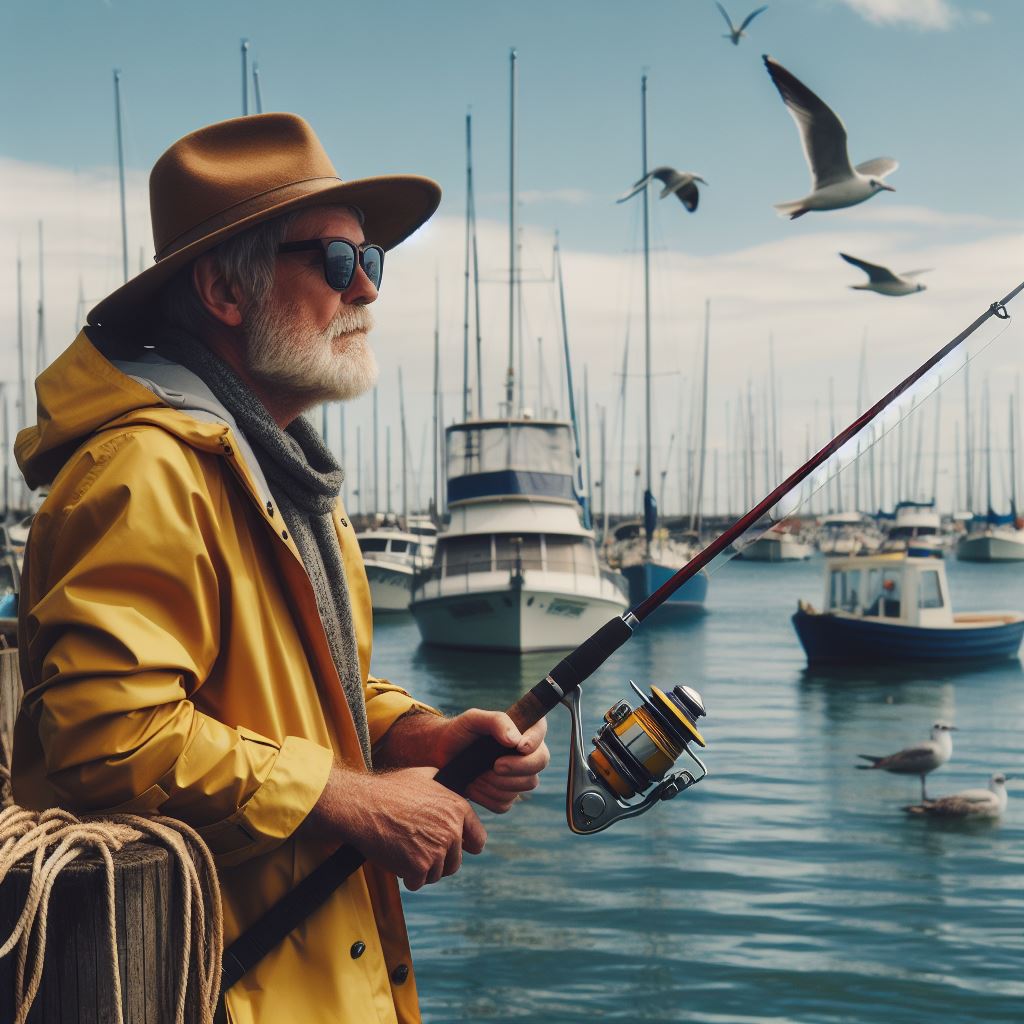
Discover More: Australian Forestry: Past, Present, and Future
Winter Fishing Season
The winter fishing season in Australia typically begins in June and lasts until August.
Challenges and Opportunities
Winter fishing presents its own unique set of challenges and opportunities for anglers.
- Cold temperatures can make fishing uncomfortable, but it also means less competition from other anglers.
- Fish are often more concentrated during the winter, allowing for better chances of a successful catch.
- Winter can bring unpredictable weather conditions, so it is important to be prepared and stay safe.
Best Fishing Locations
Despite the cold, there are several excellent fishing locations in Australia that are perfect for winter angling.
- The Snowy Mountains in New South Wales provide ample opportunities for trout fishing.
- The Great Barrier Reef in Queensland offers a range of fishing options, including reef fishing and deep-sea fishing.
- The Lakes Entrance in Victoria is known for its excellent bream and flathead fishing during the winter months.
- Port Arthur in Tasmania is a great spot for salmon and trevally fishing during winter.
Techniques for Winter Fishing
Successful winter fishing requires a different approach and technique due to the unique conditions.
- Patience is key during winter fishing. Fish are often slower and less active, so anglers need to be persistent.
- Using smaller baits and lures can be more effective during winter, as fish have smaller appetites.
- Slow and steady retrieval of bait or lure is recommended to mimic the sluggish movement of fish in colder water.
- Depth is crucial in winter fishing, as fish tend to move closer to the bottom where the water is slightly warmer.
In general, the winter fishing season in Australia provides anglers with both challenges and opportunities. Despite the cold temperatures and unpredictable weather, dedicated anglers can enjoy successful fishing trips.
The key is to be prepared, choose the right fishing locations, and employ specific techniques that are effective during winter. So, grab your gear and brave the cold for a satisfying winter fishing experience.
Read: Renewable Energy in AU Farms: Enviro Impact
Discover More: Mining Engineer Skills in Natural Resource Mgmt
See Related Content: Enviro Management Trends in Australia’s Farms
Overall Tips for Fishing in Australia
When it comes to fishing in Australia, there are a few general tips that can greatly enhance your experience. Whether you are a beginner or an experienced angler, these tips will help you make the most out of your fishing adventures.
Check Local Regulations and Obtain Permits
- Before heading out to fish, it is crucial to check the local regulations and obtain the necessary permits.
- Each state in Australia may have its own set of rules and restrictions regarding fishing.
- It is important to familiarize yourself with these regulations to avoid any legal trouble and protect the environment.
Essential Fishing Gear and Equipment
- A sturdy fishing rod and reel combo is an essential tool for any angler in Australia.
- Choose a rod and reel that are suitable for the type of fishing you plan to do.
- Make sure to have a variety of fishing lines, hooks, and sinkers to cater to different fishing conditions.
- Don’t forget to pack a tackle box filled with lures, bait, and other accessories.
- A fishing hat, sunglasses, sunscreen, and insect repellent are also must-haves for a comfortable fishing experience.
Understand the Fish Species and Their Habitats
- Take the time to research and understand the fish species that can be found in the area you plan to fish.
- Know their habits, preferred baits, and the best time to target them.
- Each species may have different feeding patterns and habits, so tailoring your fishing techniques accordingly can greatly improve your chances of success.
Be Prepared for Changing Weather Conditions
- Australia’s weather can be highly unpredictable, so it is important to be prepared for changing conditions.
- Check the weather forecast before heading out and be ready to adjust your fishing plans accordingly.
- Carry appropriate clothing layers, rain gear, and extra supplies to ensure your safety and comfort throughout the fishing trip.
Learn From Local Anglers and Fishing Communities
- Australia is home to various fishing communities filled with experienced anglers.
- Take the opportunity to learn from them, whether through online forums or local fishing clubs.
- Local anglers can provide valuable insights into the best fishing spots, techniques, and even the type of bait to use.
Practice Catch and Release
- To preserve Australia’s diverse marine ecosystems, it is important to practice catch and release whenever possible.
- Handle the fish with care and release them back into the water promptly.
- This helps maintain the fish population and ensures the sustainability of the fishing industry for future generations.
Safety First
- Always prioritize safety when fishing in Australia.
- Inform someone about your fishing plans, especially if fishing alone.
- Carry a first-aid kit and familiarize yourself with basic first-aid procedures.
- Be mindful of your surroundings, watch out for dangerous marine creatures, and avoid risky behaviors.
Fishing in Australia offers endless opportunities for anglers of all levels. By following these overall tips, you can enhance your fishing experience, stay safe, and contribute to the conservation of Australia’s stunning aquatic environments.
Conclusion
In closing, this blog post has provided a comprehensive overview of the importance of understanding fishing seasons for a successful fishing experience.
We have explored the main factors that influence fishing seasons, including water temperature, fish spawning patterns, and environmental conditions.
Understanding these factors is crucial for anglers to maximize their chances of a fruitful fishing trip.
By aligning their fishing excursions with the optimal seasons for their target species, anglers can significantly enhance their catch rates and overall enjoyment.
It is essential to emphasize that fishing seasons are not arbitrary; they are intricately linked to the natural rhythms of aquatic ecosystems.
As such, planning fishing trips based on the outlined seasons enables anglers to work in harmony with nature, fostering sustainable fishing practices and preserving fish populations for future generations.
Moreover, by planning their fishing trips strategically, anglers can capitalize on peak fishing times, increasing their likelihood of success and creating memorable experiences on the water.
In light of the insights shared in this blog post, we encourage readers to take a proactive approach to their fishing endeavors.
Whether targeting freshwater or saltwater species, understanding fishing seasons is key to unlocking the full potential of every fishing adventure.
So, next time you plan a fishing trip, remember to consult the seasons and embark on an unforgettable angling journey tailored to nature’s rhythms.

